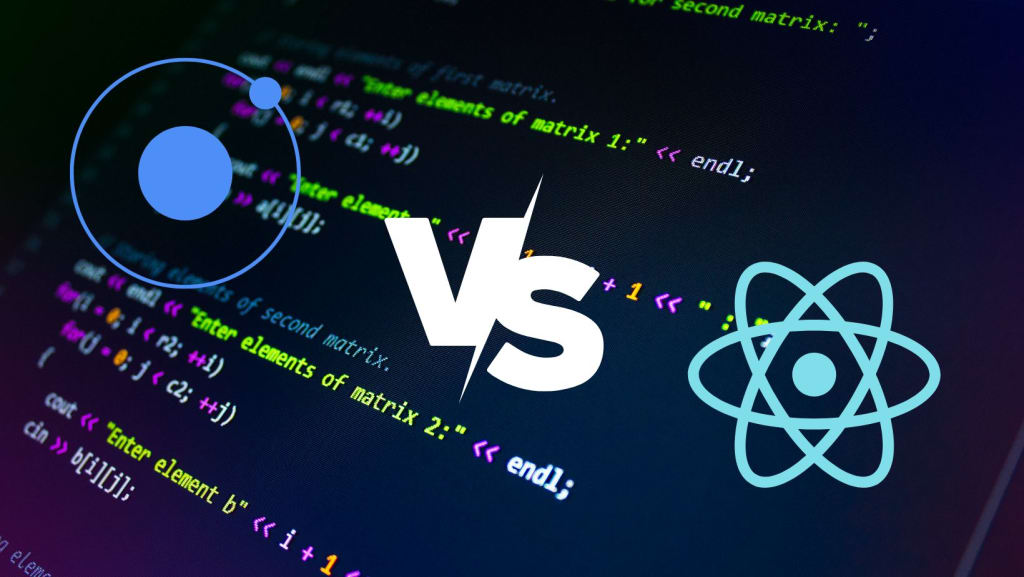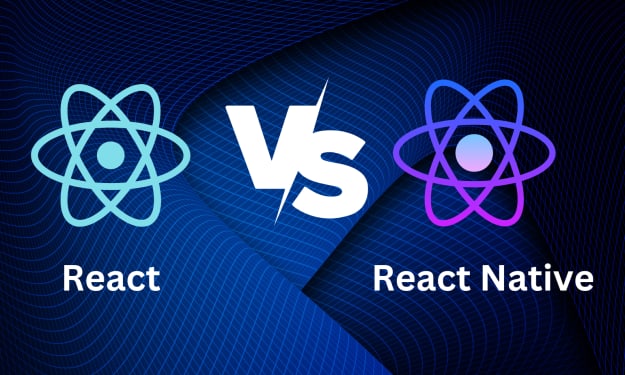Best Cross-platform App Development Frameworks: Ionic or React Native?
The mobile application has brought about a significant change in how business is conducted, as it has helped drive growth to greater heights. Over the last decade, mobile technology has advanced so that developers can build great apps based on it.

An application's success is primarily determined by the tech stack that goes into it. The choice of technology to accelerate your project is challenging for many businesses, whether startups or established organizations and one such framework streamlines the development process.
Two of the key cross-platform technologies, i.e., React Native and Ionic, have given us key players' applications like Pinterest, LinkedIn, and much more. To make a choice easier for all the development companies, we have listed out head to head comparison of React Native vs. Ionic.
Read on.
About React Native
Developed by Facebook, React Native is a framework that allows developers to write apps for multiple platforms. With React-Native, you can develop cross-platform apps built on the same building blocks as you would in developing native apps. This cross-platform framework uses the same building blocks in developing Android and iOS apps.
Features
- It is possible to reuse components on both iOS and Android devices.
- There is no learning curve when it comes to React Native, and any developer can easily understand and modify the code.
- The developer community is large.
About Ionic
Ionic is an open-source framework that provides UI and Native APIs to developers. Using standard web technologies allows you to build iOS, Android, Electron, and web apps using cross-platform UI components and native API functionality for these platforms.
Ionic was first released in 2013. This is the current version of the product, version 6.0.0, released on December 20, 2021.
Features
- The framework allows developers to create hybrid mobile apps.
- This application is built with AngularJS and Apache Cordova.
- A one-time development effort results in Android, iOS, and Windows apps.
Ionic vs. React Native: Key differences in 2023
Likely, you are already aware that Ionic and React dominate the development of cross-platform apps. Considering this, we will begin this comparison to find out what the differences between React Native and Ionic are and how to make the right decision for your business.
Popularity
The popularity factor plays a significant role in the popularity of React Native as compared to Ionic on the GitHub platform. GitHub reports that this project has many stars, forks, contributors, and version releases. Aside from that, Ionic is getting a lot of attention within the community as it grows and gains popularity. A total of 238 versions are available for it as well.
Functionality
Native apps are created using React Javascript, a powerful programming language. An added benefit of Javascript is communicating with platforms (for example, iOS and Android) through native platform APIs. These APIs forward data requests to a Javascript API designed for mobile platforms, and a bridge connects these two APIs.
Unlike React Native, Ionic uses Cordova instead of dynamic runtimes. The Cordova application uses web views (UIWebView on iOS and WebView on Android). An HTML/CSS user interface is produced by the WebView component (WebKit/Blink).
Performance
Using web technologies like HTML, CSS, and JavaScript allows users to create hybrid apps that perform well. To give your application a native look and feel, you must install a third-party package or plugin. Due to the added layer in Ionic that requires the use of Cordova plugins, its performance is slower than similar apps due to this additional layer.
The React Native framework is based on native APIs and components. As a result, it provides performance that is similar to that of native applications. React Native also provides developers the option of writing code in native languages through the use of native modules.
Security
Using Cordova, Ionic makes it easy to work with iOS developers while ensuring that their applications are secure with the help of secure storage. On Android, one of the primary requirements for encrypting a device is having a swipe lock or a screen lock configured on it.
On the other side, React Native developers can rely on several third-party libraries to encrypt data locally and carry out the task.
Maintainability
There is a better-maintaining ability in Ionic as compared to React Native because there is only one code that has to be maintained (hybrid application) instead of several. However, maintaining continuous release cycles using Ionic and Cordova is the biggest challenge.
Maintainability is a major concern in React Native. If you use a third-party application at any point, the updated code could be incompatible with it.
Developers community
The community support of Ionic is superb, as is the marketplace where you can find several starter apps and templates for you to get your app, like Uber. The Ionic framework has about 46k stars on GitHub, and around 407 people contribute to the project.
Market and community recognition go to React Native. In response to its increasing demand, its developers' network is quickly growing due to its popularity. As a result, React Native makes it easier to get started on a project. Another way to judge its popularity is to look at its GitHub stats.
Conclusion
How is the battle between React Native and Ionic going to play out in the end? We make no assumptions; only the success of your project is essential at the end of the day. If an application can meet all the requirements of your business in the most efficient manner, it is considered successful. Choosing the right framework depends on your business requirements.
About the Creator
kathleenbrown
Technology consultant in leading software development company committed to providing end-to-end IT services in Web, Mobile & Cloud.






Comments
There are no comments for this story
Be the first to respond and start the conversation.